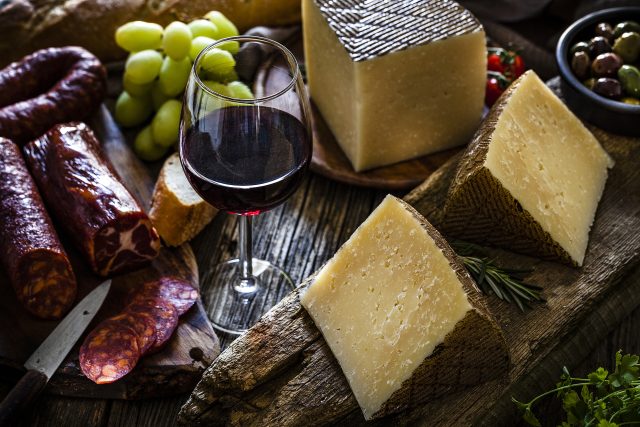Patrick Schmitt MW: We don’t drink wine just for intoxication
Patrick Schmitt MW explains that looking at only the public health and intoxication issues of alcohol misses one of the main reasons why we drink it.

With Dry January now behind us, the focus of media attention seems to have shifted from the dangers of drinking to other health issues, notably the life-shortening nature of vaping. But it won’t be long before the spotlight is back on booze.
Indeed, as we went to press with our latest February print edition, our daily email newsletter featured news of a four-year study that will question whether wine should remain on the ‘Mediterranean diet’.
So, before this decade comes to a close, that most hallowed union of nourishment – fresh food and fine wine – will doubtless be ditched. Wine’s replacement in this wonderful fusion? I can’t think of one, and that’s because nothing can match wine’s ability to enhance both food and mood.
With this in mind, I am surprised and saddened that a few excellent wine writers should have used last month’s guilt-inducing, booze-dropping vibe to promote the benefits of eschewing alcohol. Not because I’m entirely against abstaining – it can be a sensible test of will, or a worthy act of Lenten self- denial, as long as it’s not used to draw attention to one’s piety.
No, my frustration with the column inches devoted to glorifying new-year sobriety is that no-one appears to have mentioned wine’s role in delivering delicious refreshment. Wine is simply viewed as a medium for putting alcohol into our bloodstream – as though we only drink for intoxication.
Now, I wouldn’t have a problem with giving up alcohol, but I do have an issue with forgoing wine. That’s because a proper meal – by which I don’t mean a sandwich al desko – is incomplete without wine. And vice versa. In my view, wine needs food, just as food needs wine.
Wine in small doses does good for the spirit – it relieves stress and promotes conversation – but it also provides a sensory pleasure due to its smell and taste. I have tried no other drink with wine’s extraordinarily rich mix of characters, nor ability to improve the pleasure of eating, not just by complementing the flavours, but by augmenting them.
Also, such is the diversity of wine, it can offer a different taste experience every day, even if it’s the same bottle at various stages in its development.
Partner Content
Now, I do believe moderate drinking is good for the body – more than a century of scientific studies have shown that – but I don’t think people consume wine for that reason (except perhaps in China). Neither do I think all but a small minority use wine primarily to get drunk. What I do think is that wine is mostly enjoyed because of the way it tastes. So, let’s celebrate that – not talk up denial and abstinence. We should promote the sensory benefits of dining with wine. As for the health risk, well, that’s up to each consumer to weigh up versus the reward. But in this regard, I’m reminded of Kingsley Amis on drinking. He said, “No pleasure is worth giving up for the sake of two more years in a geriatric home in Weston-Super-Mare.”
I didn’t do Dry January; neither will I partake in Sober October. Wine is part of my diet, whether it lengthens or shortens my time on this planet. And that’s because I love the way it tastes.
Read the February issue of the drinks business magazine here.
Subscribe to the drinks business here
Related articles
Has Dry January hit French booze sales hard?
Dry January sees low- and no-alcohol boost as alcohol spend falls
Why Damp January should replace Dry January
Related news
Strong peak trading to boost Naked Wines' year profitability




